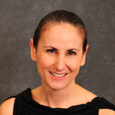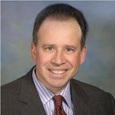Hit the Phones! Collection Season Looms Extra Large for New York Law Firms
Rate increases and longer collection cycles mean New York firms have bigger client bills to collect this year-end, according to data from two banks.
November 27, 2017 at 03:46 PM
5 minute read
 Shutterstock.com
Shutterstock.com
Collecting year-end payments from clients in the fourth quarter is a business imperative for law firms every year. But for large New York law offices, it may be especially critical—and rewarding—in 2017.
According to two banks' legal industry data about the first nine months of the year, New York-based law firms, still facing mediocre demand at best, have been sitting on large stacks of unbilled and billed time, much more than in previous years and higher than the national average. Citi and Wells Fargo legal industry surveys show high inventories for New York firms from January through September, in large part due to higher than average billing rate increases this year.
“It's more important than usual to convert that inventory to cash,” said Gretta Rusanow, head of advisory services at Citi Private Bank's Law Firm Group.
Citi figures are based on a sample of 36 New York-headquartered firms, ranging from small to large. The Wells Fargo data is based on a sample of nearly 20 New York firms, including about a dozen of some of the most profitable firms in the country, with profits per partner at $2 million or more and revenue per lawyer at $1 million or more, according to Jeff Grossman, managing director of banking in the bank's Legal Specialty Group.
 Gretta Rusanow of Citi Private Bank's Law Firm Group.
Gretta Rusanow of Citi Private Bank's Law Firm Group.According to the Citi data on the first nine months of 2017, New York firms' inventory, meaning their accounts receivable and their unbilled time, was up 5.4 percent compared with the same period last year, while the industry inventory overall was up 4.6 percent, Rusanow said. “There's an even greater opportunity for New York firms to push for collection at year-end,” she said.
Wells Fargo's survey shows an even higher rate of inventory for New York firms, up 8.5 percent compared with the first nine months of last year, Grossman said. “That inventory growth exceeds any national benchmark or any regional benchmark,” he said.
Rates on the Rise
The growth isn't necessarily a sign of a flourishing market in the city. Rate increases and a slower collection cycle are factors. The collection cycle lengthened 3.4 percent for New York firms, compared with 0.9 percent for the industry, Rusanow said.
The banks' surveys show billing rate increases at New York firms so far this year are higher than the average across the country.
 Jeff Grossman of Wells Fargo.
Jeff Grossman of Wells Fargo.According to Wells Fargo, billing rates were up 4.5 percent for New York firms, while Citi data showed billing rates for New York firms increased 4.7 percent.
For the industry as a whole, rates were up 4 percent in the first nine months of 2017, said Citi's Rusanow. “Rate increases have been a key driver of revenue growth for several years, and they are stronger than usual,” she said.
For instance, at the most profitable firms in the country, said Grossman, the average partner rate is $1,140 per hour, up from $1,085 last year. The average lawyer rate at these firms also increased last year, to $815 an hour from $775, he said. Both those rates increases are above 5 percent.
“In 2016 and 2017, the very profitable group, many of which are New York firms, are seeing the highest rate increases since the recession,” Grossman said.
Going forward, firms in the Am Law 50, 100 and 200 are all, on average, budgeting a 5 percent increase for 2018, according to Grossman. “That will be three years in a row for pretty robust increases for the largest firms,” he said.
Revenue, Demand Slowdown
According to Citi data about the first nine months of 2017, revenue growth for New York firms was up 2 percent, compared with the industry average of 3.6 percent. New York firms had one of the lowest revenue growth figures compared with other regions in the country, Rusanow said.
Wells Fargo's data showed revenue at New York firms was up 6 percent on average, but that sample included a wide range, Grossman said. One firm was up 19 percent, while another was down 9 percent, he said.
Demand growth also didn't look rosy.
According to Citi, demand at New York firms, based on the number of billable hours logged from January through September, was down 1.9 percent compared with the first nine months of 2016, more severe than the rest of the industry, which was down only 0.2 percent. Rusanow said she heard anecdotally from firms that demand levels were down, specifically in transactional work, in the third quarter.
Wells Fargo reported a slight increase in demand for New York firms, with demand up 1.2 percent.
Overall, 2017 is still shaping up to be a positive year for New York firms—at least on average, and if they can collect what they're owed.
“I see 2017 for the New York firms being a relatively good year because their revenues are up nicely for nine months and they're sitting on a nice amount of inventory,” Wells Fargo's Grossman said. But, he added: “For the industry as a whole, it's very challenged.”
With New York firms' expense growth at 2.7 percent—higher than the rate of revenue growth—collecting on inventory will be important for New York firms to close the gap, said Rusanow from Citi. “It really does come down to the last few months,” she said. “So much will rest on what happens with [year-end] collections.”
This content has been archived. It is available through our partners, LexisNexis® and Bloomberg Law.
To view this content, please continue to their sites.
Not a Lexis Subscriber?
Subscribe Now
Not a Bloomberg Law Subscriber?
Subscribe Now
NOT FOR REPRINT
© 2025 ALM Global, LLC, All Rights Reserved. Request academic re-use from www.copyright.com. All other uses, submit a request to [email protected]. For more information visit Asset & Logo Licensing.
You Might Like
View All
Kirkland Is Entering a New Market. Will Its Rates Get a Warm Welcome?
5 minute read

Strategic Pricing: Setting the Billable Hour at the Intersection of Psychology, Feedback and Growth
Trending Stories
- 1Bass Berry & Sims Relocates to Nashville Office Designed to Encourage Collaboration, Inclusion
- 2Legaltech Rundown: McDermott Will & Emery Invests $10 Million in The LegalTech Fund, LexisNexis Releases Conversational Search for Nexis+ AI, and More
- 3The TikTokification of the Courtroom
- 4New Jersey’s Arbitration Appeal Deadline—A Call for Clarity
- 5Law Firms Look to Gen Z for AI Skills, as 'Data Becomes the Oil of Legal'
Who Got The Work
J. Brugh Lower of Gibbons has entered an appearance for industrial equipment supplier Devco Corporation in a pending trademark infringement lawsuit. The suit, accusing the defendant of selling knock-off Graco products, was filed Dec. 18 in New Jersey District Court by Rivkin Radler on behalf of Graco Inc. and Graco Minnesota. The case, assigned to U.S. District Judge Zahid N. Quraishi, is 3:24-cv-11294, Graco Inc. et al v. Devco Corporation.
Who Got The Work
Rebecca Maller-Stein and Kent A. Yalowitz of Arnold & Porter Kaye Scholer have entered their appearances for Hanaco Venture Capital and its executives, Lior Prosor and David Frankel, in a pending securities lawsuit. The action, filed on Dec. 24 in New York Southern District Court by Zell, Aron & Co. on behalf of Goldeneye Advisors, accuses the defendants of negligently and fraudulently managing the plaintiff's $1 million investment. The case, assigned to U.S. District Judge Vernon S. Broderick, is 1:24-cv-09918, Goldeneye Advisors, LLC v. Hanaco Venture Capital, Ltd. et al.
Who Got The Work
Attorneys from A&O Shearman has stepped in as defense counsel for Toronto-Dominion Bank and other defendants in a pending securities class action. The suit, filed Dec. 11 in New York Southern District Court by Bleichmar Fonti & Auld, accuses the defendants of concealing the bank's 'pervasive' deficiencies in regards to its compliance with the Bank Secrecy Act and the quality of its anti-money laundering controls. The case, assigned to U.S. District Judge Arun Subramanian, is 1:24-cv-09445, Gonzalez v. The Toronto-Dominion Bank et al.
Who Got The Work
Crown Castle International, a Pennsylvania company providing shared communications infrastructure, has turned to Luke D. Wolf of Gordon Rees Scully Mansukhani to fend off a pending breach-of-contract lawsuit. The court action, filed Nov. 25 in Michigan Eastern District Court by Hooper Hathaway PC on behalf of The Town Residences LLC, accuses Crown Castle of failing to transfer approximately $30,000 in utility payments from T-Mobile in breach of a roof-top lease and assignment agreement. The case, assigned to U.S. District Judge Susan K. Declercq, is 2:24-cv-13131, The Town Residences LLC v. T-Mobile US, Inc. et al.
Who Got The Work
Wilfred P. Coronato and Daniel M. Schwartz of McCarter & English have stepped in as defense counsel to Electrolux Home Products Inc. in a pending product liability lawsuit. The court action, filed Nov. 26 in New York Eastern District Court by Poulos Lopiccolo PC and Nagel Rice LLP on behalf of David Stern, alleges that the defendant's refrigerators’ drawers and shelving repeatedly break and fall apart within months after purchase. The case, assigned to U.S. District Judge Joan M. Azrack, is 2:24-cv-08204, Stern v. Electrolux Home Products, Inc.
Featured Firms
Law Offices of Gary Martin Hays & Associates, P.C.
(470) 294-1674
Law Offices of Mark E. Salomone
(857) 444-6468
Smith & Hassler
(713) 739-1250











